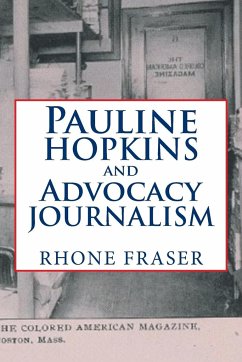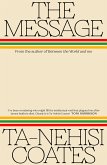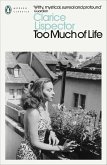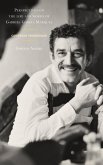In the 1905 letter to William Monroe Trotter, Pauline Hopkins wrote that she lost the editorship of the Colored American Magazine because she "refused partisan lines" and "pursued an independent course." This book focuses on how her editorship promoted an advocacy journalism that sought to abolish Jim Crow. The work of the magazine under her editorship "pursued an independent course" because it included in-depth biographical sketches of those whose lives she, before many, deemed important to know, such as Toussaint L'Ouverture and Harriet Tubman. Hopkins "pursued an independent course" also as a novelist, particularly in her first novel Contending Forces, a work unique for a narrator that tried to, in Hopkins's words, "raise the stigma of degradation from my race." Her following three novels were serialized in the Colored American Magazine. Her 1901 novel Hagar's Daughter is about the attempt of two generations to assimilate within the Washingtonian elite, her 1902 novel Winona exposes the effect of Washington's 1850 Fugitive Slave Law on enslaved children, and her 1903 novel Of One Blood explores what it means for an individual socialized in the West to, in Hopkins's words, "curse the bond of the white race." In Dr. Rhone Fraser's, close reading of her fiction, he looks at how her protagonists in each novel pursue "an independent course" and in his final chapter he compares her essential work to Black journalists of the twenty first century who, like her, "refused partisan lines" and "pursued an independent course." Pauline Hopkins's work was not just the work of a typical journalist, but the work of an advocate.
Hinweis: Dieser Artikel kann nur an eine deutsche Lieferadresse ausgeliefert werden.
Hinweis: Dieser Artikel kann nur an eine deutsche Lieferadresse ausgeliefert werden.








